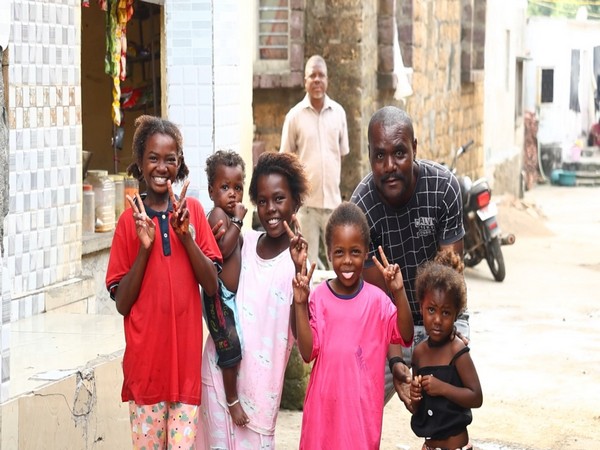Empowering Siddis: Gujarat's Path to Inclusive Growth
The Siddi community in Gujarat, with African ancestry, has benefited from extensive government initiatives for tribal development, including scholarships and financial assistance. These efforts have uplifted educational and economic conditions, reflecting India's commitment to inclusive growth and empowering Gujarat's tribal communities.

- Country:
- India
The Siddi community, a unique ethnic group with African lineage, has historically resided in Gujarat's Junagadh and Gir Somnath regions. Despite their rich cultural background, the community has endured various socioeconomic challenges over the years. However, in 2003, the Siddis gained official recognition as a Scheduled Tribe in Gujarat, becoming eligible for government-sponsored benefits such as scholarships, job reservations, and financial aid.
Government initiatives aimed at integrating the community into mainstream development highlight a strong commitment to inclusive growth. Khelan, a member of the Siddi tribe, noted significant gains from such programs, stating, "In our village (Jambur), about 70% have benefited from Awas Yojana. Pradhan Mantri Jeevan Jyoti Bima Yojana has insured 80% of us, and Pradhan Mantri Suraksha Bima Yojana covers about 90%. The whole population now has Ayushman Cards."
Majgul Abdul Ismail, another tribe member, emphasized the supportive role of the BJP government and PM Modi. "Our boys, who were initially not inclined towards sports, now receive training in various areas, including Bhavnagar and Nadiad, with aspirations for the Olympics." Additional assistance covers housing and education grants, with improvements in water and electricity supply.
During Gujarat's Vikas Saptah that marks 23 years of PM Modi's leadership, standout initiatives like Vanbandhu Kalyan Yojana have become keystones for tribal advancement. Launched in 2007, the scheme focuses on generating employment, quality education, and infrastructure for comprehensive tribal development.
Currently, nearly 15% of Gujarat's budget is earmarked for tribals, addressing the needs of 89.17 lakh individuals while raising literacy rates to 62%. Schools like Ashram Shalas have been pivotal in making education accessible to tribal children, funded generously with scholarships covering tuition to essentials. Mukesh Parmar, Secretary of Bhil Seva Mandal, testified to the change, "Many students, myself included, came from humble backgrounds, benefitting from government schemes." Empowerment has extended to tribal women as well, showcased by a group from the Tadvi community who runs a cafe at Arogya Van in Kevadiya.
The 'Jai Gayatri' women's group received a 10 lakh rupee grant to establish their business, with each member earning a monthly income of 8,000 rupees, serving traditional Gujarati food. They have catered to notable figures including former President Ram Nath Kovind and PM Modi. Premila Ben Tadvi reflected on the transformation, "We tribal women never worked outside before. PM Modi's tourism initiatives have sparked economic growth. Our cafe has sustained us and supported our children's education."
Gujarat's robust journey towards tribal development, initiated by PM Modi, continues under various leaderships, embodying a vision of inclusive, people-focused governance. Efforts across education, healthcare, employment, and cultural upliftment position Gujarat as a model of holistic development.
(With inputs from agencies.)
ALSO READ
Manipur Congress submits memorandum to PM Modi, calls for action on Manipur crisis
INDIA bloc parties from Manipur urge PM Modi to visit state for restoration of peace
"All-round development made in north-east after formation of PM Modi BJP govt": Union MoS Nityanand Rai
"21st century is India's century": PM Modi at Ashtalakshmi Mahotsav
I strongly believe coming days are of eastern India, northeast: PM Modi at Ashtalakshmi Mahotsav in Delhi.










